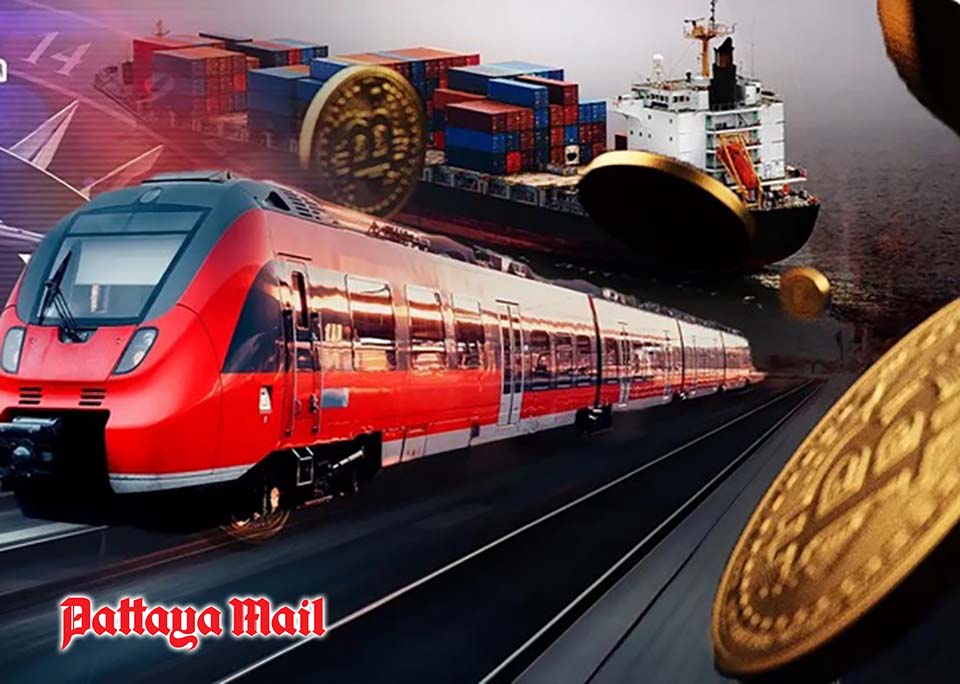
BANGKOK, Thailand – As the Thai government approaches its two-year milestone in August 2025, a midterm review of its economic flagship policies reveals significant delays, political entanglements, and adjustments that have stalled progress. These five key policies — the Entertainment Complex project, the Southern Land Bridge initiative, the Digital Wallet scheme, the high-speed rail linking three airports, and the proposed nationwide minimum wage hike to 600 baht — have all hit roadblocks, many stemming from the nature of Thailand’s coalition governance.
Prime Minister Srettha Thavisin initially led the administration after the 2023 general election. He was later succeeded by Paetongtarn Shinawatra. During this period, the government introduced ambitious economic initiatives with the aim of revitalizing Thailand’s economy. However, political disagreements within the coalition and opposition from the Senate have undermined implementation efforts.
- Entertainment Complex Bill Stalled Amid Political Tension
The Entertainment Complex initiative — which includes a proposal to legalize integrated entertainment venues — has been approved by the Cabinet but was pulled from the parliamentary agenda in April 2025. This decision came after coalition parties signaled they might abstain from voting, and amid rumors that former PM Thaksin Shinawatra had threatened to expel non-supporting coalition members. Meanwhile, senators (Sao Wor “Blue Line”) have publicly demanded that the bill go through a public referendum, citing potential legal violations if the government bypasses due process. Prime Minister Paetongtarn has since instructed officials to conduct more public outreach to shift focus from casino concerns to broader economic benefits.
- Land Bridge Project Becomes a Political Tug-of-War
The Southern Economic Corridor (SEC), or Land Bridge project, is Thailand’s largest infrastructure venture to date, with a projected investment of 1 trillion baht to connect the Gulf of Thailand and the Andaman Sea. Despite initial international interest — particularly from Middle Eastern, Chinese, and European investors — the project’s momentum has waned since Srettha’s departure. Though no coalition party opposes the project outright, both Pheu Thai and Bhumjaithai parties claim ownership of the initiative, potentially setting the stage for election campaign rivalry in southern constituencies. A draft bill to establish the SEC legal framework is currently undergoing public hearings and is expected to be tabled in Parliament in July 2025, with a private-sector investment bidding process planned for December 2025.
- Digital Wallet Program Quietly Shut Down
Initially hailed as a game-changer, the 10,000-baht Digital Wallet stimulus program has been quietly dismantled. Originally set at 450 billion baht, the program faced feasibility issues, budget constraints, and skepticism from key financial institutions like the National Economic and Social Development Council (NESDC) and the Bank of Thailand. Political partners distanced themselves from the plan, wary of Pheu Thai gaining undue political leverage. The government ultimately reduced the program’s scale and changed its format to direct cash payouts. Now, the remaining 157 billion baht is slated to be redirected to economic resilience projects amid global uncertainties, such as potential tariff increases from a new Trump administration in the United States. A final decision was scheduled for May 19, 2025, effectively marking the program’s end.
- High-Speed Rail Faces Delays Over Contract Amendment Dispute
The long-stalled high-speed rail linking Don Mueang, Suvarnabhumi, and U-Tapao airports — a key infrastructure under the Eastern Economic Corridor (EEC) — has yet to break ground more than five years after its signing in 2019. The 224.5-billion-baht project is a joint venture between the State Railway of Thailand (SRT) and Asia Erawan Co., Ltd., a CP Group affiliate. Though the joint investment contract amendment has received approval from the EEC Policy Committee and the SRT board, Bhumjaithai ministers have opposed the revised payment structure, citing concerns about undue benefit to the private sector. The proposal is currently pending Cabinet approval.
- 600-Baht Minimum Wage Goal Remains Elusive
The Pheu Thai-led government’s promise to raise the national minimum wage to 600 baht has seen only partial implementation. While some provinces have begun to see wage increases, there remains no clear nationwide rollout plan. The lack of consensus and planning within the coalition has contributed to inconsistent execution, raising questions about the feasibility of achieving the 600-baht target within the current term.










